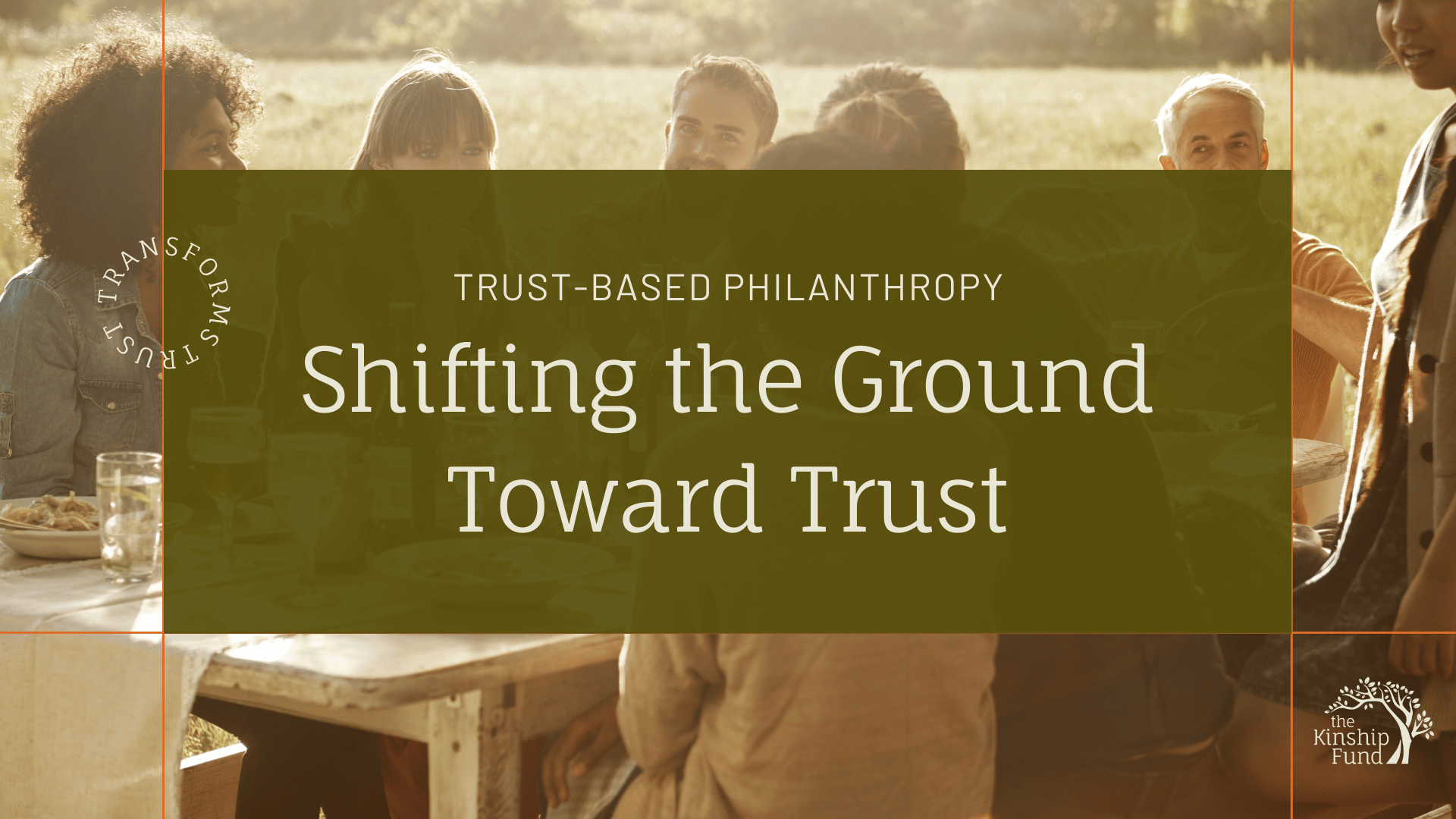
April 2025
By Kim Berry Jones
Our grant-funded project to help women leaving the life of sexual exploitation wasn’t going as planned. We’d struggled to identify outcomes for a brand-new program when we first applied for the grant, and if I’m honest, we had contorted ourselves to fit into the box the funders wanted to fund.
And now here I was, needing the funds again to keep my staff employed, and worried I wouldn’t be able to explain why our “failure to meet outcomes” was an opportunity to share our bigger vision with the funder. The power dynamic was palpable as I viscerally felt the impact losing these funds would have on our program.
When we’d first met, I recognized a great rapport with the woman administering the grant, but now she wasn’t returning my calls. Our connection was tenuous, and her understanding of how our work empowered survivors to build sustainable futures was limited. The large corporation she represented felt impenetrable and out of touch with the hard work we did every day. And I was tired.
This was the water I swam in: I depended on donors and foundations to keep my team’s paychecks coming, but I never had enough time to network, follow up, and prove our worth. I hoped that the stories of our impact would be enough, but let’s face it, I knew I was swimming upstream all the time, competing with so many other powerful stories and cash-strapped nonprofits.
It was my exhaustion to find funding for our nonprofit that made me hesitate when I had the opportunity to come over to the other side. But that’s precisely why I am here.
When I began the journey to operationalize a new private foundation serving the San Diego nonprofit community, my first step was to identify who I didn’twant us to be. The nonprofit sector in San Diego and beyond is led by leaders of color who have taken the charge to step in where the government has abandoned the social framework. I had some questions to ask myself as I assumed this new role, because as a white woman, now having the checkbook only elevated my privilege.
Trust-based philanthropy is a buzzword, but the practice is rooted in shifting power and fostering mutually accountable partnerships built on trust. It’s turning the way we do things on its head and looking at new, upside-down ways to work together. I never experienced it in the ten years I ran after grants for the nonprofit I led. Sadly, there’s not a lot of evidence from this side of the fence that it’s happening much in San Diego now.
Two years in, I am beginning to see the tender shoots of relationships that can be built when mutuality and partnership are our core values. And while I often talk about our work through a trust-based philanthropy lens, that means nothing if we are not walking the walk. Attempting to walk this road with integrity means I must mostly listen, question every process a foundation typically puts in place, and prioritize relationships above all else.
At its core, trust-based philanthropy reimagines the power dynamics between funders and nonprofits and recognizes that those closest to the work know what needs to be done and how to do it.
1. Multi-year, unrestricted funding
This names that change takes time, and the experts doing the work deserve flexibility.
2. Relationships over reports
Reducing the time required to apply for grants and centering conversations and relationships over written reports shows we are trying to change norms.
3. Transparent and responsive communication
We’re here. You can call me and I will answer your questions. Ideally, I’m ahead of that by initiating in your direction, and what we communicate is honest and clear.
4. Looking for and acting on feedback
If we are unwilling to change direction after feedback from our partners, then we are not taking mutual learning seriously.
5. Offering support beyond the check
While every nonprofit needs that check, showing up to make connections, offer capacity-building support, or simply being there to imagine solutions together over time leads to trust.
6. Centering equity
Our systems are doing what they were designed to do: perpetuate injustice. The philanthropic machine is no different. Seeking out leaders often overlooked or under-resourced is a tangible step in the right direction.
Father Greg Boyle, founder of Homeboy Industries, reminds us that if our motivation is “to help people,” it is still all about me. Leading a foundation from a trust-based lens means it’s never about me. It’s about working to remove the burden of proof from my colleagues who lead nonprofits. It’s about honoring the lived experience of leaders by saying, “We see you. We believe in your vision. May we walk alongside you in partnership?”
The Kinship Fund
An initiative of the Nancy Neffson and Wetmore Family Foundation
Sign up to receive updates and information about our grant process.